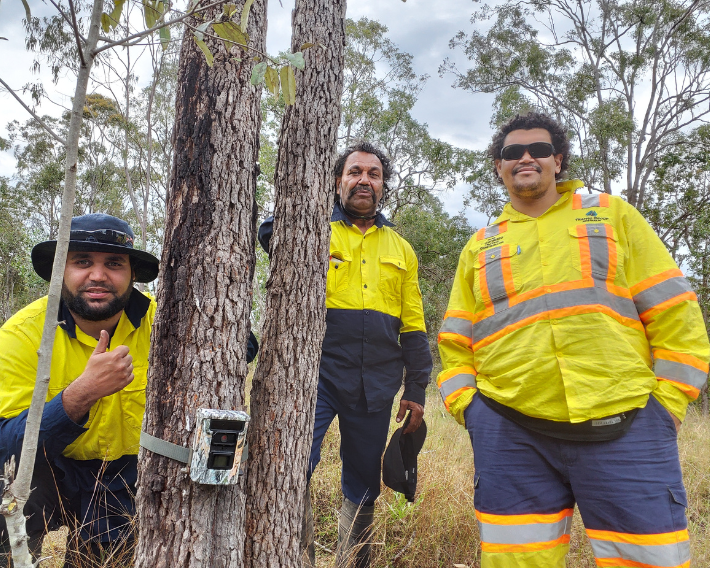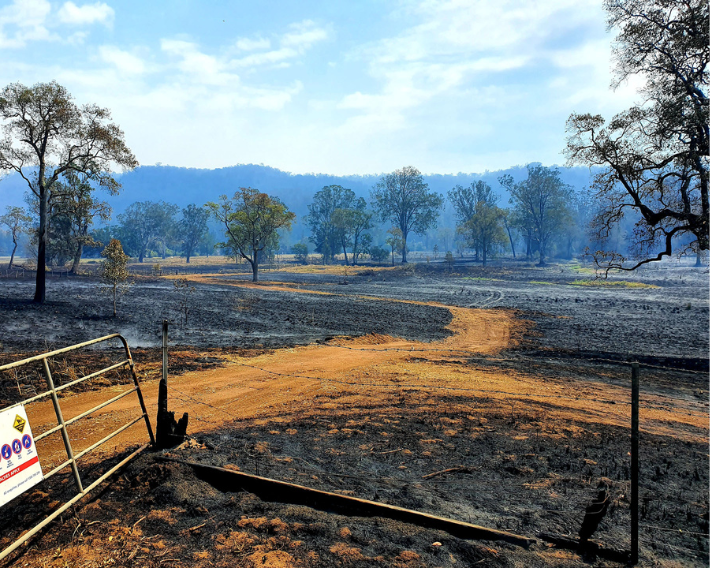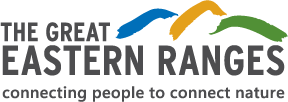
Four new Indigenous ranger positions have been created in the Northern Rivers as part of a large-scale effort to help restore Country, culture and community in some of the most heavily bushfire-affected landscapes in NSW.
The Great Eastern Ranges has received $1 million of funding from the Australian and NSW government’s Bushfire Local Economic Recovery (BLER) Fund to work with its regional partners, IFAW (International Fund for Animal Welfare) and the Community Environment Network to roll out recovery activities in the NSW North Coast, Blue Mountains, South Coast and Far South Coast.
The Indigenous ranger positions are just one element of the ambitious project, which seeks to boost local capacity and employment opportunities, build community and landscape resilience, support native wildlife and restore and reconnect the region’s ‘natural infrastructure’.
The new rangers, employed by GER’s regional partnership the Border Ranges Alliance, will carry out bush regeneration works on properties in Busby’s Flat and surrounds – an area which was particularly badly impacted in the Black Summer bushfires.
Jane Baldwin, GER regional lead, said the ranger positions will help Casino Boolangle Local Aboriginal Land Council (LALC) to manage lands in their ownership, some of which were severely affected by the fires and are struggling to recover, and others which were unburnt and provide important refuges for local wildlife.
“We’ve seen heartbreaking losses of native wildlife as a result of the Rappville Fire including core populations of koalas. This program will ensure koala food tree species get ahead of the weed growth and that the bush in general is supported in its natural recovery processes,” she said.
The new LALC ranger team is a family affair with current employees Jaydon, Jireh and Peter Cavanagh following in the shoes of their older cousins who used to work as rangers before the Black Summer bushfires.
“It feels great to be on Country helping to bring back the plants and animals after fire, seeing the before and after effects of our efforts,” said Jaydon.
The bush needs help through the different stages of recovery, we clean up weeds and overgrowth to allow the animals to come back, have access to waterways and areas that used to be their habitat.”
Their father, Peter Snr, explained further.
“Our custom is to look after the animals, they’re our totems. The country and animals are one – by healing the country, we heal the animals and we heal ourselves,” he said.
“It’s good to get on Country, to where our ancestors are. This work is good for my people. It’s not the money, we do it for the love and the feeling. The opportunity to work together as a family on country is good.”

CEO of GER Gary Howling said that the ranger positions would enable and inspire two-way learning and knowledge sharing.
“A business-as-usual approach to conservation is no longer an option in our rapidly changing climate. First Australians hold a vast wealth of ecological knowledge that can help us to build healthier, more resilient landscapes, ecosystems and communities, and reduce the impacts of climate disasters,” Gary said.
“To achieve the best outcomes on the ground, we need to work together and blend traditional ecological knowledge with modern science.”
Additional employment opportunities are emerging in other project regions as work begins with locals engaged to assist with regenerating and reconnecting habitat, weeding, fencing and research.
The project will provide a further boost to regional economies by sourcing materials for on-ground works such as seeds and plants, fencing materials and nest boxes from local suppliers.
“We developed our BLER Fund project in response to appeals for assistance from local landholders and communities who lacked the sufficient funding, knowledge or resources to respond to a bushfire crisis of this scale by themselves. Our project answers these needs,” said Gary.
The project will build on the other targeted post-fire recovery efforts that the GER and its partners have been carrying out in these landscapes since early 2019.



 Media release
Media release